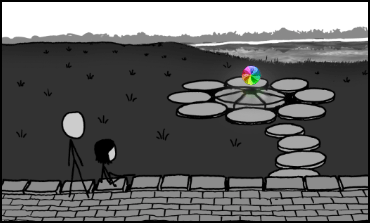Christopher Hitchens, 1949-2011
The video above, is classic Christopher Hitchens, during an appearance on CNN talking about the subject of the death of Jerry Falwell. No one could communicate his point so harshly, yet so well. The humanist movement has lost a giant today. Juli Weiner, writing for Vanity Fair, has an excellent piece on Hitchens. Hitchens worked for Vanity Fair since 1992.
“Cancer victimhood contains a permanent temptation to be self-centered and even solipsistic,” Hitchens wrote nearly a year ago in Vanity Fair, but his own final labors were anything but: in the last 12 months, he produced for this magazine a piece on U.S.-Pakistani relations in the wake of Osama bin Laden’s death, a portrait of Joan Didion, an essay on the Private Eye retrospective at the Victoria and Albert Museum, a prediction about the future of democracy in Egypt, a meditation on the legacy of progressivism in Wisconsin, and a series of frank, graceful, and exquisitely written essays in which he chronicled the physical and spiritual effects of his disease. At the end, Hitchens was more engaged, relentless, hilarious, observant, and intelligent than just about everyone else—just as he had been for the last four decades. William Grimes, writing for the New York Times, has a wonderful obituary which discusses his life. Christopher Hitchens, a slashing polemicist in the tradition of Thomas Paine and George Orwell who trained his sights on targets as various as Henry Kissinger, the British monarchy and Mother Teresa, wrote a best-seller attacking religious belief, and dismayed his former comrades on the left by enthusiastically supporting the American-led war in Iraq, died on Thursday in Houston. He was 62.


